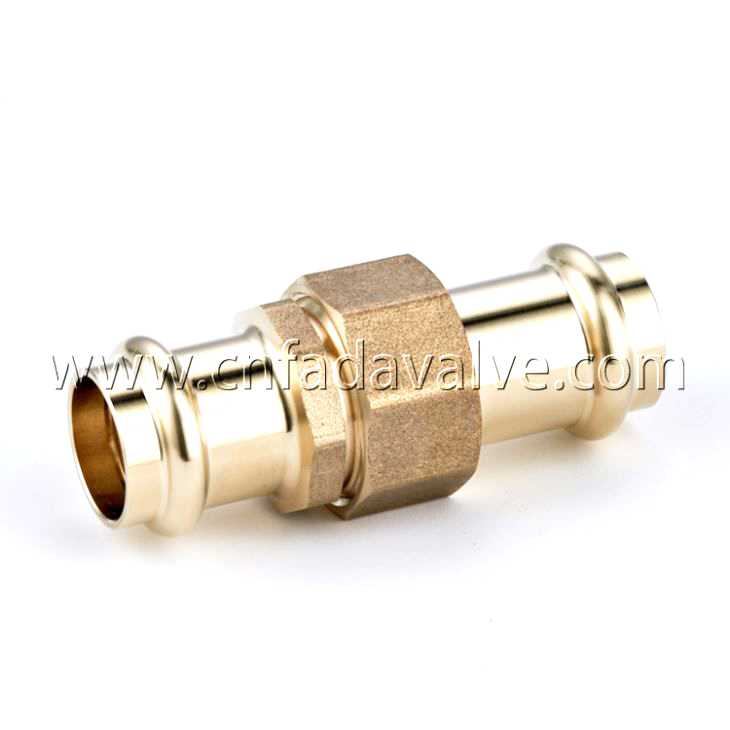Lead-free brass valves are widely used in plumbing systems to manage water flow and control pressure. These valves have become a standard choice due to regulations restricting lead content in potable water systems. While lead-free brass offers reliable performance, their lifespan depends on several factors, including material properties, water quality, installation, and maintenance. Understanding these influences helps in predicting durability and planning replacements in plumbing systems.

1. Material Properties and Manufacturing Quality
Composition and Corrosion Resistance
Lead-free brass is an alloy primarily composed of copper, zinc, and minimal amounts of other metals such as tin or nickel, without added lead. The removal of improves water safety but slightly changes the alloy’s mechanical properties compared to traditional brass. The corrosion resistance of the alloy plays a significant role in longevity. High-quality lead-free brass typically resists scaling, pitting, and dezincification better than low-grade alloys, extending the service life of valves in domestic and industrial applications.
Valve Design and Surface Finish
Manufacturing precision also affects lifespan. Valves with smooth internal surfaces reduce friction and wear when water passes through, decreasing the likelihood of premature failure. Components such as seals and seats, made from materials compatible with lead-free brass, contribute to durability. Poorly designed or low-quality valves may exhibit faster degradation due to stress concentration, internal corrosion, or metal fatigue.
Expected Lifespan Range
On average, lead-free brass valves can last 15 to 30 years under typical conditions. The upper range is achievable with high-quality materials and careful handling, while lower-end lifespans may result from substandard production or harsh usage conditions. Although brass alloys are durable, their lifespan is not indefinite and will eventually be limited by mechanical wear and material degradation.
2. Environmental Factors
Water Quality and Composition
The chemical composition of water significantly affects valve durability. Hard water with high mineral content can cause scaling inside the valve, restricting flow and increasing mechanical stress. Acidic or highly chlorinated water may accelerate corrosion, even in lead-free brass. The presence of dissolved oxygen or other oxidizing agents also contributes to surface degradation over time.
Temperature and Pressure Conditions
Excessive water temperature or pressure can reduce valve lifespan. Valves continuously exposed to temperatures above the recommended limit for the alloy may soften or lose mechanical strength. High-pressure fluctuations cause stress on valve joints and seals, potentially leaks or fractures. Properly rated valves for expected environmental conditions generally maintain their integrity for the predicted service life.
External Environmental Factors
Valves installed in outdoor or industrial environments face additional challenges, such as exposure to humidity, airborne chemicals, or mechanical impact. Insulating valves from conditions or corrosive environments through protective coatings or housings can help maintain functionality and extend lifespan.
3. Installation and Usage Considerations
Correct Installation Practices
Proper installation is essential for long-term performance. Over-tightening connections, misalignment of piping, or failure to include supportive fixtures can create stress points on valves. Such stress may deformation, leaks, or premature wear. Ensuring that the valve is installed according to manufacturer specifications reduces mechanical strain and supports consistent performance.
Usage Patterns and Frequency
Valves that are frequently operated or exposed to high flow rates experience more mechanical wear than those used occasionally. For example, industrial systems with continuous flow cycles may show signs of seat or seal wear sooner than residential setups. Understanding the typical load and operating conditions helps predict valve longevity more accurately.
 +86-576-82686004
+86-576-82686004
 allen@badavalve.com / daisy@badavalve.com
allen@badavalve.com / daisy@badavalve.com





 EN
EN
 Español
Español










